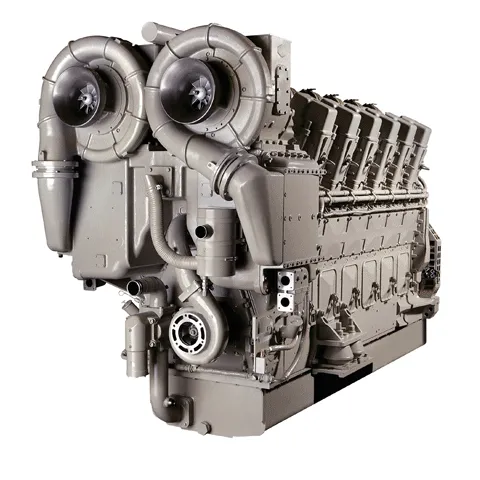Guaranteeing Long-Term Performance with Engines For Africa Products
Guaranteeing Long-Term Performance with Engines For Africa Products
Blog Article
A Full Guide to Choosing the Right Engine for Your Task
Selecting the ideal engine for your project is a crucial choice that can considerably influence its overall success. It is imperative to thoroughly specify your project needs, examine efficiency needs, and consider user-friendliness alongside other crucial factors. Furthermore, recognizing the area assistance available and scrutinizing expense ramifications can additionally improve your selection. Each of these elements plays a pivotal role in making sure that your picked engine not just satisfies prompt objectives yet additionally aligns with lasting goals. As we check out these considerations, you may find that the nuances of each aspect disclose greater than originally prepared for.
Define Your Project Demands
Defining your task needs is a vital step in choosing the ideal engine for successful application. A thorough understanding of your project's goals will certainly direct you in recognizing the capacities and features needed from an engine. Begin by outlining the scope of your job, consisting of the wanted functionality, target audience, and the certain end results you aim to achieve.
Next, take into consideration the technical demands that line up with your task objectives. This consists of evaluating the compatibility of the engine with existing systems, in addition to the programs languages and structures that will certainly be utilized. Additionally, evaluate the level of scalability needed to fit future growth or modifications popular.
Budget plan restrictions additionally play a crucial function in defining your project requires. Establish a clear economic framework to assist your decision-making process, ensuring that the engine picked fits within your spending plan while giving the essential capability.
Evaluate Efficiency Needs

Next, take into consideration the scalability of the engine. Examine whether it can handle raised workloads as your job expands. Engines that support straight scaling are frequently better for larger applications. Furthermore, review the engine's performance under different problems, such as peak use scenarios, to ensure it fulfills your reliability requirements.
Take Into Consideration Ease of Use
While technological requirements are important, the simplicity of usage of an engine can significantly affect the growth procedure and overall job success. An user-friendly user interface, clear documentation, and structured workflows can considerably minimize the understanding contour for designers, allowing them to concentrate on imagination and analytical as opposed to grappling with complex devices.
When evaluating an engine's convenience of usage, think about the onboarding experience. A well-structured introduction, complete with tutorials and example jobs, can assist in a smoother shift for new users. Additionally, the quality and comprehensiveness of the engine's documents play a critical learn the facts here now duty; detailed web guides and API references can encourage designers to troubleshoot and apply attributes effectively.
Another element to think about is the engine's customization abilities. An engine that enables very easy alterations can be more straightforward, as designers can tailor it to fit their details requirements without considerable hassle. Lastly, analyze the operations integration with systems and devices you already make use of. A natural ecological community can improve productivity and reduce rubbing during the development process. Inevitably, selecting an engine that prioritizes simplicity of use can result in an extra pleasurable and effective growth experience.
Assess Community and Support
The toughness of an engine's area and assistance network can substantially influence a designer's experience and success. A dynamic neighborhood commonly shows a riches of shared knowledge, resources, and troubleshooting help that can enhance your project's development procedure. When examining an engine, think about the dimension and activity level of its neighborhood. Bigger communities commonly use more online forums, tutorials, and third-party plugins, enabling designers to discover services much more successfully.
Furthermore, review the availability of main support channels. Trusted paperwork, responsive consumer support, and normal updates are important for dealing with technological issues and keeping your job on course. Engines For Africa. Active neighborhoods likewise foster cooperation, providing chances for networking and feedback, which can be important, especially for little groups or independent designers
In addition, check out the existence of community-run visit the website events, such as meetups or hackathons. These gatherings can enhance your understanding of the engine while linking you with prospective partners and seasoned customers. In summary, a robust community and support group not just streamline development but also produce an atmosphere helpful to finding out and technology, ultimately boosting the likelihood of your task's success.
Contrast Cost and Licensing Options
Spending plan factors to consider play an essential function in choosing the appropriate engine for your task, as the expense and licensing options can considerably affect both short-term expenses and lasting practicality. Engines For Africa. Different engines provide differing pricing structures, which can include one-time acquisition fees, subscription models, or revenue-sharing agreements based on your project's earnings

Licensing alternatives likewise differ substantially. Some engines are open-source, offering flexibility and community-driven assistance, while others may need exclusive licenses that restrict use and distribution. Understanding the implications of each licensing version is essential, as it influences possession legal rights, future scalability, and prospective lawful responsibilities.
Final Thought
In final thought, picking the ideal engine for a task demands a thorough evaluation of specified project requirements, performance demands, ease of usage, area support, and expense factors to consider. By methodically addressing these essential elements, decision-makers can ensure positioning with both future and current project needs. A well-informed choice ultimately improves the possibility of task success, allowing efficient source allotment and taking full advantage of prospective outcomes within the specified monetary restrictions.
Choosing the suitable engine for your task is an essential decision that can substantially influence its overall success.Defining your task needs is an essential action in picking the proper engine for effective implementation. A comprehensive understanding of your job's goals will assist you in identifying the capabilities and features needed from an engine.When you have a clear understanding of your job needs, the next action is to review the performance requirements of the engine.In conclusion, selecting the appropriate engine for a job requires a detailed assessment of specified job needs, efficiency demands, convenience of use, community assistance, and expense considerations.
Report this page